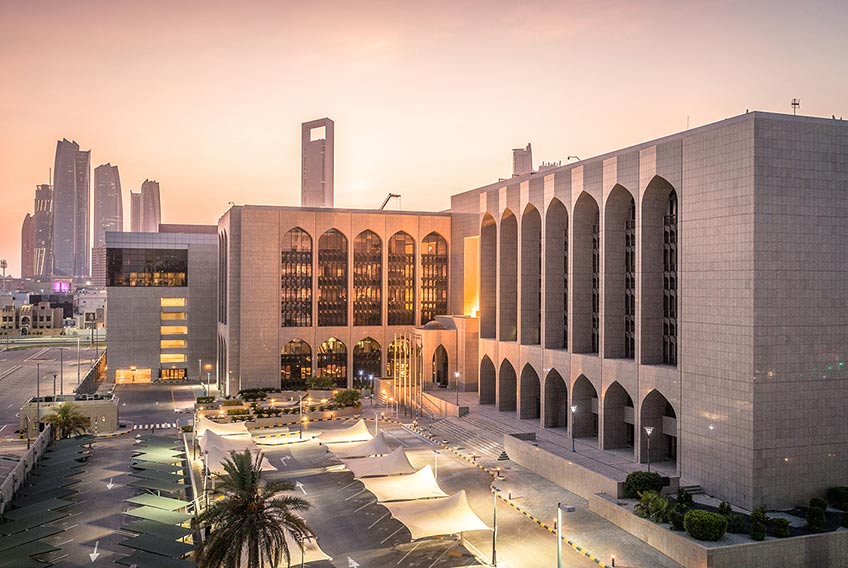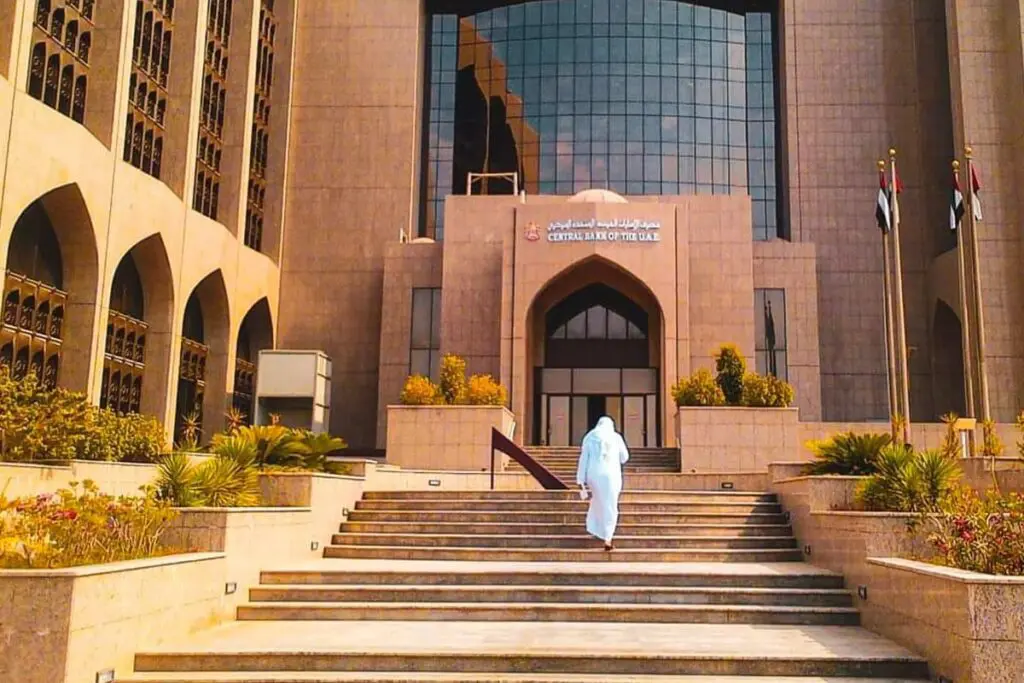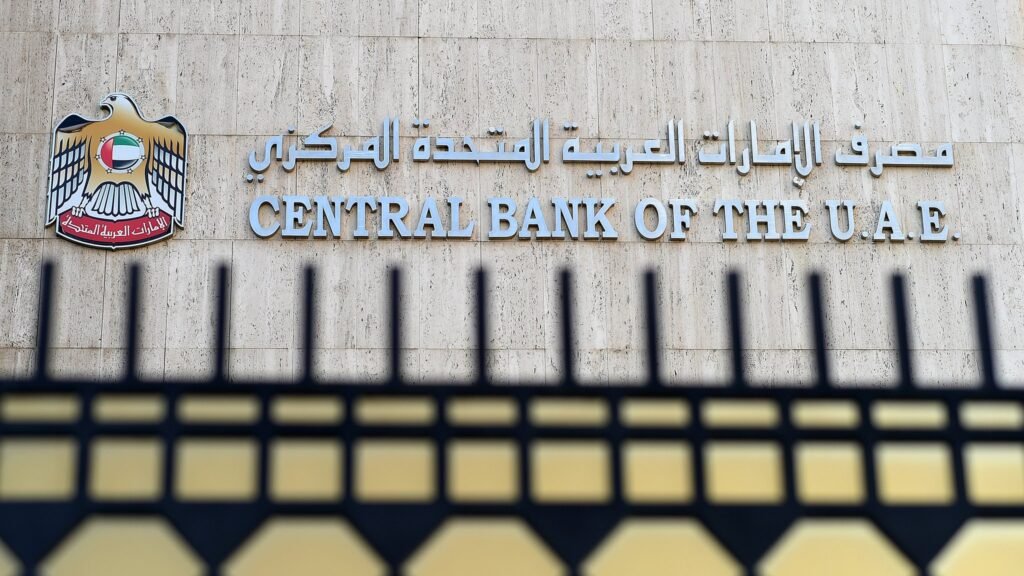The UAE Central Bank 2025 growth forecast has been revised upward, signaling a positive outlook for the country’s economy. The central bank now anticipates a GDP expansion of 4.9% in 2025, up from the previously projected 4.4%. This revision reflects the cumulative impact of several factors, including a strong revival in the real estate sector, robust non-oil economic performance, and strategic government initiatives to diversify and strengthen the economy.
This increase in the growth forecast underscores the resilience of the UAE’s economic framework and highlights the country’s ability to attract investment while sustaining long-term development. It also reflects the effectiveness of economic diversification strategies that reduce reliance on oil revenue, which has historically been the backbone of the national economy.
Real Estate as a Growth Driver
One of the key drivers behind the UAE Central Bank’s revised growth forecast is the impressive performance of the real estate sector. Property markets in major cities like Dubai and Abu Dhabi have seen strong demand across residential, commercial, and luxury real estate segments.

Domestic buyers and international investors have increasingly turned their attention to the UAE, attracted by competitive pricing, regulatory reforms, and promising returns on investment. Residential property sales have shown significant growth, with luxury apartments, villas, and townhouses being particularly popular. The commercial real estate sector has also benefited from increased business activity, including expansions of retail spaces, office buildings, and mixed-use developments.
Developers in the UAE have responded to this surge in demand with new projects that focus on innovation, sustainability, and high-quality urban planning. This growth in construction and real estate investment has not only contributed directly to GDP growth but also created substantial employment opportunities across construction, architecture, property management, and associated services.

Non-Oil Sector Expansion
Alongside real estate, the non-oil sector has remained a major contributor to the UAE’s economic growth. Industries such as finance, tourism, manufacturing, logistics, and technology are expanding rapidly.
Financial services have seen a surge, driven by increased consumer confidence, investment inflows, and digital banking solutions that make financial transactions faster and more efficient. The tourism sector continues to be a major pillar of growth, with global travelers returning in large numbers due to the UAE’s safe and welcoming environment, world-class attractions, and cultural experiences.
Manufacturing and logistics have also contributed to economic diversification. Strategic infrastructure developments, such as ports, airports, and free trade zones, have strengthened the UAE’s position as a regional trade hub. The logistics industry benefits from rising e-commerce activity, creating new opportunities for supply chain innovations and job creation.
The focus on non-oil sector expansion reflects the UAE government’s broader vision of sustainable and diversified economic growth. By promoting investment in technology, education, renewable energy, and other non-oil industries, the country is reducing its vulnerability to fluctuations in global oil prices.

Government Policies Supporting Growth
Government policies and initiatives have played a crucial role in supporting economic growth and contributing to the upward revision of the 2025 growth forecast. The UAE government has actively implemented measures to attract foreign investment, stimulate business activity, and enhance the country’s overall economic competitiveness.
Policies aimed at simplifying business registration, offering long-term visas, and improving regulatory transparency have encouraged both domestic entrepreneurs and international investors to engage with the UAE economy. Additionally, government-backed infrastructure projects, smart city initiatives, and sustainability programs are creating a conducive environment for innovation and growth.
Tax incentives and reforms have further strengthened investor confidence. The introduction of value-added tax (VAT) at manageable levels, along with ongoing adjustments to corporate taxation, ensures that businesses operate in a predictable and competitive economic environment. These measures not only stimulate investment but also support domestic consumption and create a more robust economic ecosystem.
Tourism and International Trade
Tourism continues to be a vital contributor to economic growth, complementing real estate and non-oil sector expansion. International travelers are returning to the UAE in increasing numbers, attracted by luxury hotels, cultural landmarks, entertainment hubs, and global events hosted in cities such as Dubai and Abu Dhabi.
Tourism drives demand in hospitality, retail, transportation, and cultural sectors, creating jobs and stimulating domestic spending. Events like international exhibitions, sports tournaments, and cultural festivals also showcase the UAE as a global destination for business and leisure, further strengthening economic growth prospects.
International trade remains another pillar of economic stability. The UAE’s strategic location as a global trade crossroads, combined with modern logistics and transport infrastructure, facilitates smooth trade flows. Exports of goods and services continue to expand, while imports complement domestic consumption and manufacturing needs. This dynamic trade environment supports both the real estate and non-oil sectors, reinforcing the overall positive economic outlook.
Inflation and Monetary Policy
The UAE Central Bank has also taken steps to manage inflation and maintain monetary stability. Inflation is projected to remain moderate, with stable food prices, controlled energy costs, and balanced demand-supply dynamics contributing to price stability.
Monetary policy has focused on fostering economic growth while safeguarding financial stability. Interest rate adjustments, liquidity management, and regulatory oversight have created an environment where both businesses and consumers can plan for the future with confidence. These policies encourage lending, investment, and spending, all of which feed into economic expansion.
The combination of moderate inflation, supportive interest rates, and strategic government initiatives has created a favorable macroeconomic environment, which supports the Central Bank’s revised 2025 growth forecast.
Employment and Social Impact
Economic growth in 2025 is expected to have a significant impact on employment and social development in the UAE. Job creation across construction, finance, tourism, and technology sectors provides opportunities for skilled and semi-skilled workers alike.
Increased employment and higher household incomes contribute to domestic spending, which in turn supports growth in retail, hospitality, and service sectors. The focus on social development, education, and workforce training ensures that citizens and residents are prepared to benefit from new economic opportunities.
The UAE’s emphasis on gender inclusion and diversity in the workplace further strengthens the social fabric and enhances overall productivity. Women’s participation in the workforce is increasing, particularly in finance, real estate, and technology sectors, creating a more balanced and resilient economy.

Infrastructure and Urban Development
Infrastructure investment continues to be a cornerstone of economic growth. Major projects in transport, energy, urban development, and technology are reshaping the UAE’s cities, making them more attractive for residents, investors, and tourists.
Smart city initiatives integrate technology into urban planning, enhancing efficiency in transportation, energy consumption, waste management, and public services. These innovations not only improve quality of life but also attract global businesses and skilled professionals, further stimulating economic activity.
The real estate sector benefits directly from infrastructure development, as new transport links, commercial hubs, and residential communities create value and drive demand for properties. This positive feedback loop between infrastructure investment and real estate growth contributes significantly to the overall 2025 growth forecast.
Future Outlook
The UAE Central Bank 2025 growth forecast highlights a strong economic trajectory, supported by real estate, non-oil sector expansion, government policies, tourism, and infrastructure development. The country’s continued focus on economic diversification ensures long-term stability and resilience against global uncertainties.
Looking ahead, the UAE is expected to maintain a balance between growth and stability. While global economic trends, such as fluctuations in oil prices or geopolitical developments, may present challenges, the country’s diversified economy, strategic policies, and robust investment climate provide confidence in sustained growth.
Innovation, sustainability, and digital transformation will play key roles in shaping the UAE’s future economy. By investing in technology, education, and renewable energy, the country is positioning itself as a regional leader and a global hub for business and tourism.
Conclusion
The upward revision of the UAE Central Bank 2025 growth forecast underscores a period of robust economic expansion, driven primarily by real estate, non-oil sectors, tourism, and government-led initiatives. With a projected GDP growth of 4.9%, the UAE is poised to strengthen its position as a regional economic powerhouse.
The combination of strategic planning, investment in infrastructure, diversification, and supportive monetary policies creates a favorable environment for sustained growth. As the real estate sector continues to flourish and other industries expand, the UAE economy is well-positioned to meet future challenges while providing opportunities for businesses, investors, and citizens alike.
The UAE Central Bank 2025 growth forecast serves not only as a reflection of current economic success but also as an indicator of the country’s long-term vision for prosperity, stability, and global competitiveness.
Do follow UAE Stories on Instagram
Read Next – UAE Delivers 22 Water Tankers and 5 Ambulances to Gaza Amid Humanitarian Crisis












